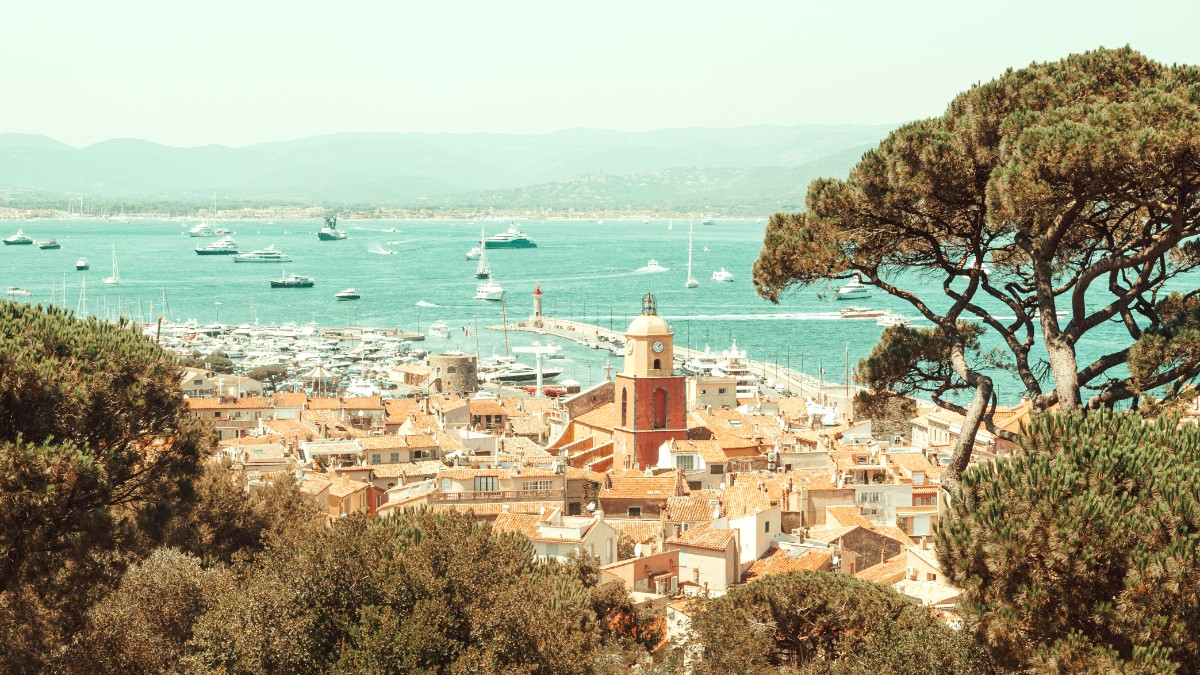
France
Summer (June-August): Expect hot and dry weather. Average temperatures range from 25°C to 30°C (77°F to 86°F), often rising above 30°C in July and August. Precipitation is minimal. Humidity levels remain generally low, making the heat feel less oppressive than in more humid climates.
Autumn (September-November): The weather turns mild and pleasant. Temperatures are typically between 15°C and 25°C (59°F to 77°F). Rainfall increases, specifically in October and November. Early autumn still features warm sea temperatures for swimming.
All establishments, including beach clubs and high-end restaurants, operate fully. The weather is ideal for swimming, sunbathing, and enjoying the water. Numerous events and parties take place during these months.
Cons: Extreme crowds appear, specifically in the town center and on Pampelonne Beach. Prices for accommodation, dining, and services are at their highest. Traffic congestion, specifically on roads leading into Saint-Tropez, presents a significant challenge. Days can be very hot.
Risk of prolonged high temperatures.
Maximum vibrancy; all establishments fully open.
Extreme crowds, highest prices, traffic congestion.
Pleasant weather with fewer crowds.
Better value, relaxed experience, most businesses open.
Sea might be cool in May, some beach clubs may close by late Sept.
Quietest period with lowest prices.
More authentic Saint-Tropez, ideal for hiking.
Many establishments close, cooler weather, higher chance of rain.
A strong, cold, dry wind from the north. It can affect the region, notably in winter and spring. This wind leads to cooler temperatures and choppy seas.
The risk of forest fires is high in summer, specifically during dry and windy conditions. Access to certain forested areas may be restricted for safety.
June, July, August, early September present the best conditions.
May, June, September, October feature comfortable temperatures.
July and August present the most options and a lively atmosphere.
November to April yield the quietest experience and lowest prices.
France is part of the Schengen Area, a zone of 27 European countries that have abolished passport and all other types of border control at their mutual borders.
U.S. Citizens: Do not require a visa for stays up to 90 days within any 180-day period. This applies to tourism or business purposes.
Ensure you have all necessary documents for entry into the Schengen Area.
Saint-Tropez is known for its high prices, specifically in high season.
Estimated daily costs per person, considering varied travel styles.
Accommodations: Budget (€50-€100), Mid-range (€150-€300), Luxury (€500-€2000+).
Transportation: Local bus ticket (€1.50-€3), Short taxi ride (€15-€30), Ferry (€10-€20).
For those seeking to maximize their experience while minimizing expenses.
Accommodation: €50-€100 (hostel/campsite)
Total Daily Cost (Approx.): €80-€170
A balance of comfort and value, with a mix of services.
Accommodation: €150-€300 (3-4 star hotel)
Total Daily Cost (Approx.): €245-€490
Indulgence and exclusive experiences define this travel style.
Accommodation: €500+ (5-star hotel/private villa)
Total Daily Cost (Approx.): €800+
| Category | Details | Prevention / Action |
|---|---|---|
| Vaccinations | No specific required vaccinations for entry. | Ensure routine vaccinations are up-to-date. Consult your healthcare provider. |
| Health Concerns | Sunburn, dehydration, jellyfish stings, seasonal allergies. | Use High-SPF sunscreen, stay hydrated, observe warnings. Carry allergy medication. |
| Crime | Generally safe with low violent crime. Petty theft (pickpocketing, bag snatching) occurs in crowded tourist areas. | Maintain awareness, use a Money belt or secure bag. Avoid openly displaying expensive items. |
Saint-Tropez's environment and climate shape the travel experience.
Recycling bins are available. Help keep beaches and town clean.
Water resources are precious, especially in summer. Conserve water.
Respect protected natural areas along the coast and in the Maures mountains.
Contribute to local efforts by choosing eco-friendly options.
Support local businesses, use public transport, and participate in eco-tourism activities.
The region's natural beauty thrives on responsible tourism practices.
Visit LifeStraw for water filtration products.
Choose reusable items, reduce waste, and conserve energy.
Learn a few French phrases and engage respectfully with locals.
Dine at local restaurants and purchase goods from artisan shops.
Be aware of specific environmental hazards to ensure a safe trip.
Saint-Tropez is committed to preserving its natural beauty.
Areas within the Gulf are designated for marine conservation.
Efforts focus on minimizing impact from visitor activities.
Town actively implements policies to safeguard its environment.